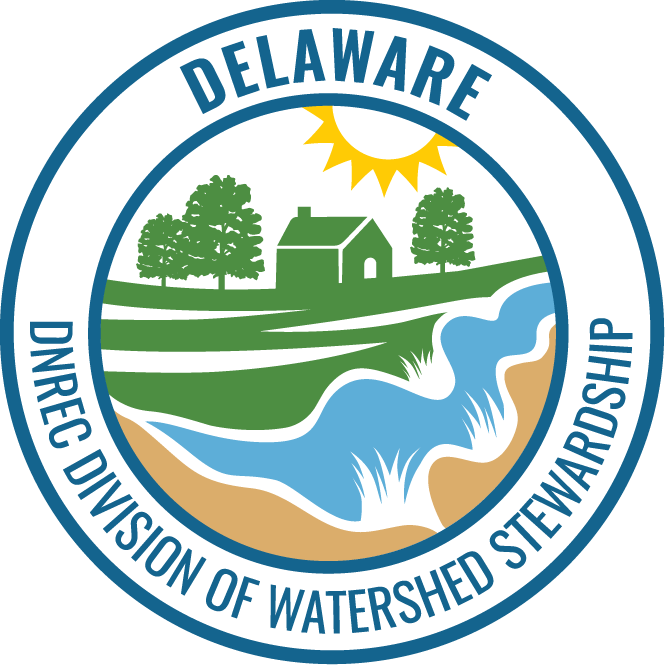
Facebook Twitter Instagram YouTube RSS Feed
Written on: July 26th, 2023 in Natural Resources, Wetland Restorations
By Brigham Whitman, Delaware Wild Lands’ New Castle County Conservation Programs Manager Taylors Bridge in southern New Castle County perfectly characterizes Delaware’s coastal flood plain: a mosaic of agricultural fields interspersed with patches of upland hardwood forest and the occasional residential development, surrounded by the waters of the Delaware Bay with fingers of marsh snaking […]
Written on: May 19th, 2023 in Natural Resources, Outreach
By Joe Schell, DNREC’s Delaware Community Conservation Assistance Program (DeCAP) When you think of the word habitat – what is the first thing that comes to mind? Is it the dawn light painting your favorite meadow with wisps of amber and gold? Or maybe it’s the cool, crisp water of a stream full of fish […]
Written on: May 25th, 2022 in Wetland Assessments, Wetland Restorations
By Erin Dorset, Delaware Division of Fish and Wildlife The Inland Bays are a beautiful and beloved part of Delaware, containing about 20% of the state’s wetlands. Those wetlands are important economically, culturally, and ecologically, as they improve water quality, support commercial and recreational fisheries, support tourism, absorb flood waters, and provide crucial feeding and […]
Written on: December 8th, 2021 in Wetland Restorations
By Sarah Bouboulis, Partnership for the Delaware Estuary The Partnership for the Delaware Estuary (PDE) has been interested in living shorelines and shellfish research since the early 2000’s, led by Senior Science Director, Dr. Danielle Kreeger. Since 2004 PDE has installed several living shorelines throughout the Delaware Estuary, primarily using materials such as coconut coir […]
Written on: September 15th, 2021 in Wetland Assessments, Wetland Restorations
By Alison Rogerson, Wetland Monitoring and Assessment Program Back in July we explored the status and trends of stormwater ponds in Delaware. This time around we’re digging into how and where Delaware ‘gained’ wetlands between 2007 and 2017, according to DNREC’s recent Statewide Wetland Mapping Project (SWMP) update. How does one gain a wetland? Where […]
Written on: September 8th, 2021 in Living Shorelines, Wetland Restorations
By Joshua Moody, Restoration Programs Manager, Partnership for the Delaware Estuary Since 2014, the City of Lewes, Delaware has been actively renovating the downtown waterfront park and shoreline along the Lewes-Rehoboth Canal, including native plant landscaping, playground features, walking paths, and educational signage. This work has been a part of a larger plan by the […]
Written on: May 18th, 2018 in Wetland Restorations
by Mark Biddle, DNREC Wetland Monitoring and Assessment Program In our everyday lives, we are always looking to find efficiency with our time and make tasks easier. If you were planning a project, how would you feel if 30-40 percent of pre-project planning was already done for you? You would likely say, “Yes, please!” Well […]
Written on: December 11th, 2017 in Wetland Restorations
Guest Writer: Susan Guiteras, USFWS Project history If you have an interest in Delaware wetlands, chances are you’ve heard about the management challenges and subsequent tidal marsh restoration at Prime Hook NWR, near Milton. For many years, two large areas encompassing about 4000 acres of the refuge were managed as freshwater impoundments. Beginning in 2006 […]
Written on: September 13th, 2017 in Wetland Restorations
Guest Writer: John G. Cargill, IV, DNREC Division of Watershed Stewardship/Division of Waste and Hazardous Substances The National Vulcanized Fiber (NVF) plant located in Yorklyn, Delaware has a rich history with humble beginnings in grist, snuff, lumber, and cotton. By the mid 1800s, production in the valley shifted to paper, and by the early 1900s […]
Written on: May 24th, 2017 in Beneficial Use
What is one way to give a marsh a lift with the challenge of rising seas? Spray the muddy material that has been dredged up from the bottom of a creek in a thin layer on top of the marsh. But how much mud is too much, and can the plants survive? These are a […]